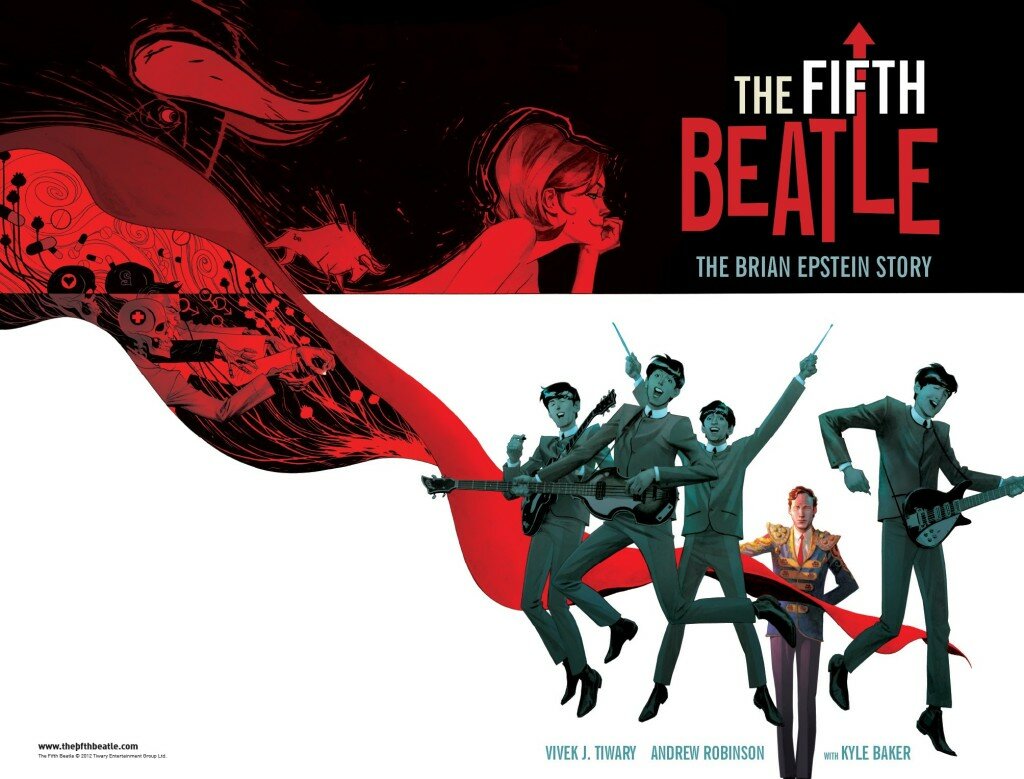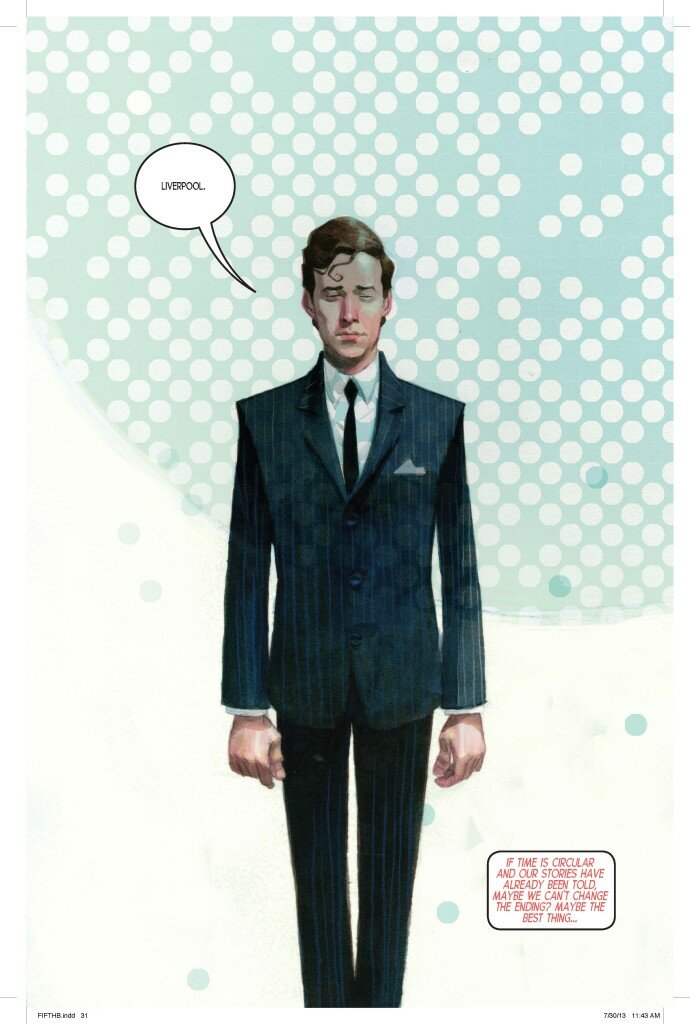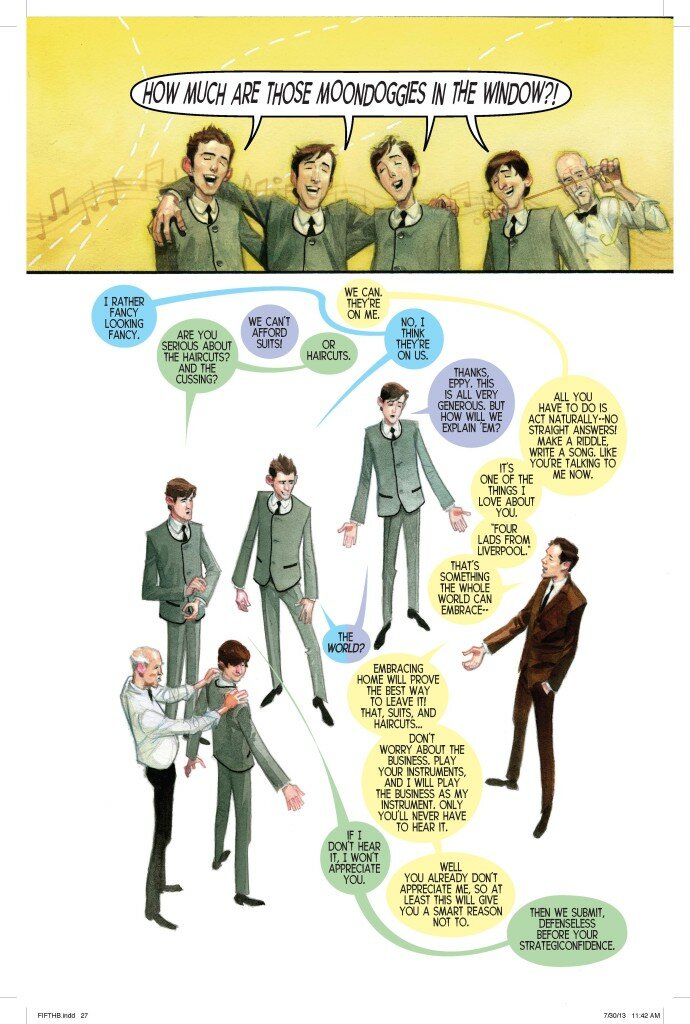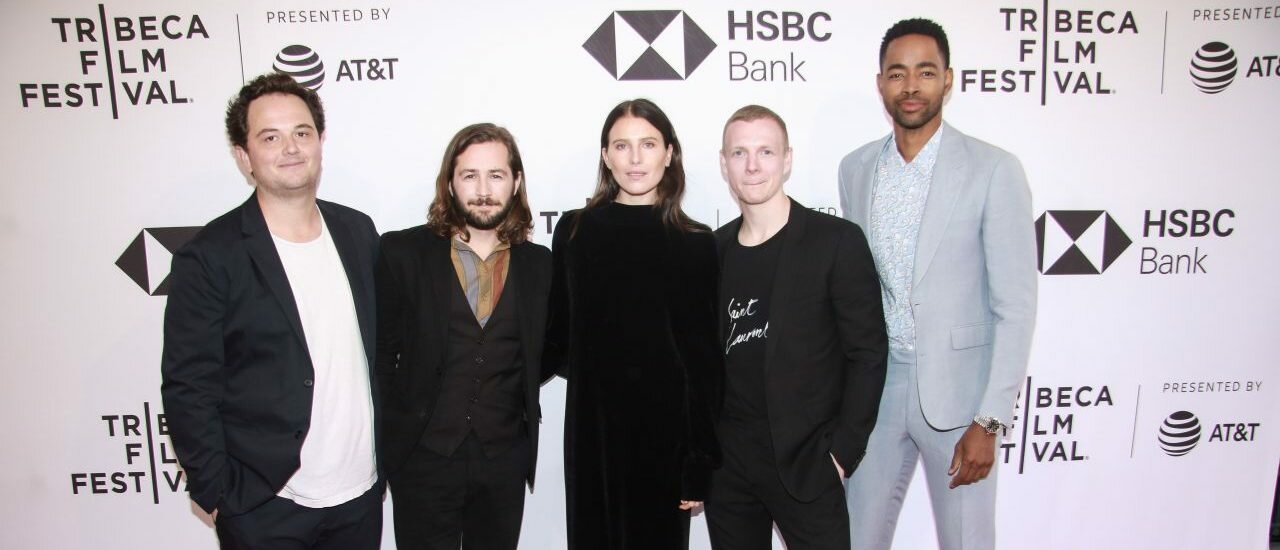by: Anthony Zangrillo
As a part of our New York Comic Con coverage, I had the opportunity to interview Vivek Tiwary, the author of the award winning graphic novel The Fifth Beatle. Vivek is a #1 New York Times bestselling author, a Tony Award-winning Broadway producer, and the founder of multi-platform arts and entertainment company Tiwary Entertainment Group. The Fifth Beatle is the untold true story of Brian Epstein, the visionary manager who discovered and guided the Beatles unprecedented international stardom. The Fifth Beatle is also an uplifting, tragic, and ultimately inspirational human story about the struggle to overcome seemingly insurmountable odds. Both heartbreaking and uplifting, The Fifth Beatle not only reveals an important, unsung chapter in the history of the Beatles—but it will inspire anyone who’s ever dared to believe in a dream. For more information and to view the trailer for the graphic novel, visit FifthBeatle.com.
To begin the interview with Vivek, I remarked on the positive impact that the Fifth Beatle has received in the period after its release. Through of its discussion of a real and tender subject matter of a real life person, the story transcends the medium to connect with readers from all backgrounds. Vivek explained that “The Fifth Beatle is not just a book or a film or anything like that. It really is a mission to sing the unsung story of Brian Epstein.” Brian was a “gay, Jewish kid from Liverpool that found a local band that he said was going to elevate pop music into an art form, that they were going to be bigger than Elvis. Everybody laughed at him and said that dream is stupid and people like you don’t do things like that.” Despite the pessimistic environment around him, Brian “chased his dream with passion and persistence, and the world got The Beatles.” Moreover Brian was only 26 when he discovered The Beatles. When Vivek was 26, he felt a little weird, but he knew he wanted to produce musical theater. Brian’s story was incredibly inspiring That’s the “heart” of The Fifth Beatle, “spreading message that no dream is too impossible and no person is too unlikely to realize that dream.” Therefore, it was always Vivek’s intention for the comic to transcend the medium, and he is delighted that it has achieved his goal.
With the upcoming film adaptation of The Fifth Beatle, I wondered if there are future plans for Vivek to spread Brian’s story in other mediums. Vivek reminded me of his background in musical theater. He initially envisioned the film as a graphic novel and a film, primarily because of the story’s need for color. “Both film and graphic novels are the two mediums that most powerfully use color in their narratives.” Recently, Vivek has considered some “avant-garde” approaches a theatrical version of The Fifth Beatle, but right now, Vivek remains very focused on the film.
Focusing further on the film adaptation, Vivek explained that he is really “expanding the graphic novel to film. There’s entire sequences in the film that don’t exist in graphic novel and there’s entire sequences in graphic novel that don’t exist in the film.” It is important to understand the differences between the two mediums. For the film adaptation, Vivek’s creative team “has access to Beatles music.” As a result, Vivek plans to utilize this asset. In some scenes of the book, “you could almost hear the music.” Only a limited number of sequences in the book that have the band actually performing, but in the film there will be “more concert and music sequences.”
It was very important for Vivek to keep the book thin and make a contained story that readers could finish in one sitting (such as on an airplane flight). As a result of this creative decision, some important material had to be cut for the graphic novel. For example, one of Brian’s first responsibilities as the manager of the Beatles was to fire Pete Best, The Beatles’ original drummer. “While Peter is not in the book, he’s expected to be dealt with in the film.” Therefore, there will be “a lot of differences.” Once again, the film will “expand upon” the graphic novel, which has “taken on a life of its own.”
When I asked Vivek on the casting of these iconic characters, Vivek admitted the difficulty of the decision. Ultimately, he aims to achieve the right fit with the story of The Fifth Beatle, and believes that “a healthy mix of famous and non-celebrity actors” would service the film. Furthermore, I wanted to know if Vivek will insist on keeping the same expressive pallete utilized in the comic book medium. While Vivek will undoubtedly have suggestions for the film, he “wants the director to have his own vision.” Vivek feels it is very important to respect the director’s view on the film. Still, the graphic novel has provided such an in-depth source for the creative team to utilize. The story opens in the dark grey and black and white ’61 area of Liverpool. As the story progresses, we approach the ’67 psychadelic era using many forms of Technicolor. Thus, color informs the tone as “The Beatles add color” to the graphic novel.
As a final question, I approached the graphic novel’s commentary on mental stigmatization. Through the course of The Fifth Beatle, readers grasp the extent of Brian’s “psychologically tortured” life. In a ludicrous example, Brian would see doctors that claimed he suffered from an “illness” because he was gay. They were trying to “treat his symptoms.” These acts undoubtedly hurt Brian more than helped him. Through The Fifth Beatle, Vivek hopes that readers make a “wellness connection” and ensure that readers maintain their own health in all areas.
For more information on how to buy the book, see the following link: http://www.darkhorse.com/Books/23-143/The-Fifth-Beatle-The-Brian-Epstein-Story








0 Comments